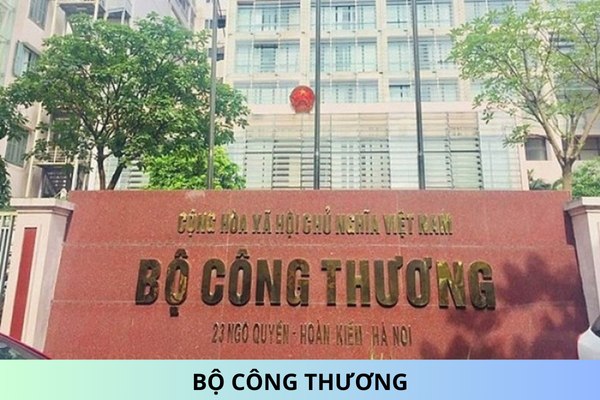What is transfer and secondment of civil servants and regime and policies for those transferred or seconded by the Ministry of Industry and Trade in Vietnam?
What is transfer and secondment of civil servants and regime and policies for those transferred or seconded by the Ministry of Industry and Trade in Vietnam?

What is transfer and secondment of civil servants and regime and policies for those transferred or seconded by the Ministry of Industry and Trade in Vietnam? (Image from the Internet)
What is transfer and secondment of civil servants and regime and policies for those transferred or seconded by the Ministry of Industry and Trade in Vietnam?
Pursuant to Article 54 of the Regulations on recruitment, rank transfer, rank promotion of civil servants and cadre work of the Ministry of Industry and Trade issued together with Decision 222/QD-BCT 2022 regulating transfer and secondment of civil servants and Regimes and policies for transferred and seconded civil servants are as follows:
Mobilization and secondment of civil servants and regimes and policies for transferred and seconded civil servants are implemented according to regulations from Article 26 to Article 28 of Decree 138/2020/ND-CP dated November 27, 2020. 2020 of the Government regulations on recruitment, employment and management of civil servants.
In Article 26, Article 27 and Article 28 of Decree 138/2020/ND-CP it is stipulated:
Transfering civil servants
1. The transfer of civil servants is carried out in the following cases:
a) According to specific task requirements;
b) According to planning and plans for using civil servants within agencies and organizations and between agencies and organizations according to decisions of competent agencies;
c) Change your working position according to the Party's regulations and the law.
2. Authority to mobilize civil servants:
The heads of agencies and organizations assigned or decentralized to manage civil servants shall decide on the mobilization of civil servants under their management authority or submit them to competent authorities for decision according to the provisions of law.
3. Order and procedures for transferring civil servants:
a) Based on the planning, work needs and capabilities and strengths of civil servants, heads of agencies and organizations assigned and decentralized to manage civil servants shall develop plans and measures to mobilize civil servants within the scope of management, report to competent authorities for consideration and decision on implementation;
b) Make a list of civil servants who need to be transferred;
c) Specific implementation measures for each case;
d) For civil servants holding leadership and management positions, the transfer order and procedures shall be implemented as in the case of appointing leadership and management civil servants from human resources elsewhere as prescribed in Clause 3, Article 46 of the Decree.
4. Before deciding to mobilize civil servants, the head of the agency assigned or decentralized to manage civil servants needs to meet with civil servants to clearly state the purpose and necessity of the mobilization to listen to the civil servant's proposed opinions before deciding according to authority or reporting to competent authorities for consideration and decision.
Seconding civil servants
1. Secondment of civil servants is carried out in the following cases:
a) According to unexpected and urgent tasks;
b) To perform the work that needs to be resolved within a certain time.
2. The term of secondment for civil servants must not exceed 3 years, except in cases where it is carried out in accordance with specialized laws.
3. Civil servants who are seconded are subject to the assignment, arrangement, evaluation, and inspection of the performance of tasks by the agency or organization where they are seconded, but are still on the payroll of the agency or organization, including cases where civil servants holding leadership or management positions are seconded to hold leadership or management positions equivalent to the positions currently held.
4. Authority to second civil servants:
The heads of agencies and organizations assigned or decentralized to manage civil servants shall decide to second civil servants under their management authority or submit them to competent authorities for decision according to the provisions of law.
5. Order and procedures for seconding civil servants:
a) The heads of agencies and organizations assigned and decentralized to manage civil servants in the places where civil servants work and where they are sent for secondment shall have a written exchange and consensus of opinions;
b) The head of the agency or organization where the civil servant is working shall decide according to his/her authority or submit it to a competent authority for decision according to management decentralization.
6. Before deciding on secondment of civil servants, the heads of agencies and organizations assigned or decentralized to manage civil servants need to meet with civil servants to clearly state the purpose and necessity of the secondment to listen to civil servants. Propose opinions before making a decision according to your authority or report to a competent authority for consideration and decision.
Regimes and policies for transferred and seconded civil servants
1. Civil servants holding leadership or management positions who are transferred or seconded to another position where the new position allowance is lower than the position allowance currently held will have their position allowance retained during the term of 06 months.
2. Agencies and organizations appointing civil servants on secondment are responsible for paying salaries and ensuring other benefits of civil servants during the period of secondment, and arranging suitable jobs for civil servants at the end of the secondment period.
3. In cases where civil servants are seconded to work in mountainous areas, border areas, islands, remote areas, ethnic minority areas, or areas with particularly difficult socio-economic conditions, they are entitled to preferential regimes and policies according to the provisions of law.
Best regards!










